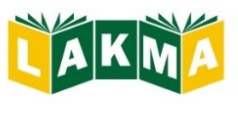Interview with Chaz Pugliese, 2014
WORKSHOP PHOTOS Chaz Pugliese, MA and Ph.D candidate, is a self-employed trainer, lecturer, presenter and author working out of Paris, France. Previously Director of Teacher Training at Pilgrims, UK, he continues to collaborate with Pilgrims as well as other top Teacher Training institutes in the UK. Chaz has trained hundreds of teachers all over the world, has…
Interview with Andreas Grundtvig, 2014
WORKSHOP PHOTOS Andreas Grundtvig Teacher Trainer, Author, IATEFL Presenter and Education Consultant based in Hamburg. Andreas grew up in the U.K. and since 1994 has worked in Spain, Lithuania, Portugal, France and Germany. He is passionate about learner autonomy, pragmatics and imaginative learning. His books for the Basis for Business series (Cornelsen) were illustrated by his Lithuanian wife…
Interview with Sylvie Doláková, 2014
WORKSHOP PHOTOS Sylvie Doláková, MA, is a teacher trainer focusing on teaching English to children aged 4–15 and working with pre-service and in-service teachers. Her courses are popular for creativity and applicability in classrooms. She specialises in teaching English through art and stories as well as publishes language game books for children. More about Sylvie Dolakova http://www.sylviad.cz…
Milda Šiukštaitė interviews ANN SNOW
Milda Šiukštaitė interviews Ann Snow What are the most important characteristics that a good teacher should have? I think a good teacher must be prepared in the subject matter, which, if we are talking about English teaching, means that they should be life-long learners and always improve their English proficiency. They should be student-centred, not…
Gintarė Ragauskaitė interviews KATARZYNA PAPAJA
Gintarė Ragauskaitė interviews Katarzyna Papaja 1. What advice could you give for young inexperienced teachers? I would say that they should always follow their dreams and try and reach their teaching aims. Young teachers will experience many difficult situations, but they should never give up. 2. Do children like being taught by the CLIL method?…
Eglė Gričinaitė interviews FRANZ MITTENDORFER
Eglė Gričinaitė interviews Franz Mittendorfer 1.How did you decide to specialize in CLIL? What was the main reason? That’s not an easy question. I think it is back to the days when I was a teacher of foreign languages in Austria’s vocational education. When you look at vocational education, you always look at using language…
Austėja Maskoliūnaitė interviews KEITH KELLY
Austėja Maskoliūnaitė interviews Keith Kelly First of all, I would like to ask you about your education. What and where did you study? Well, my undergraduate degree is in French and Russian and I studied in Liverpool and then I did a teaching degree in Bristol University and then I did a Master degree in…
Laura Baniulytė interviews PHIL BALL
Laura Baniulytė interviews Phil Ball 1.What problems do teachers encounter while using the CLIL approach? Well, it depends on whether it is the subject or language teachers, but CLIL was originally designed for subject teachers. Obviously, subject teachers think that their problems will be linguistic.They might have been teaching for thirty years, but they thinkthat…
